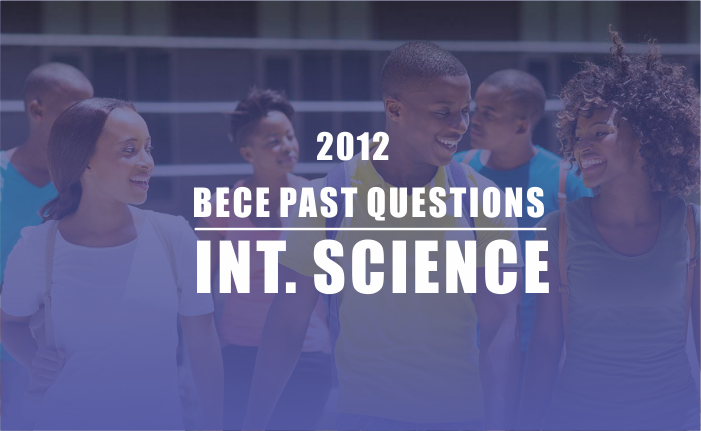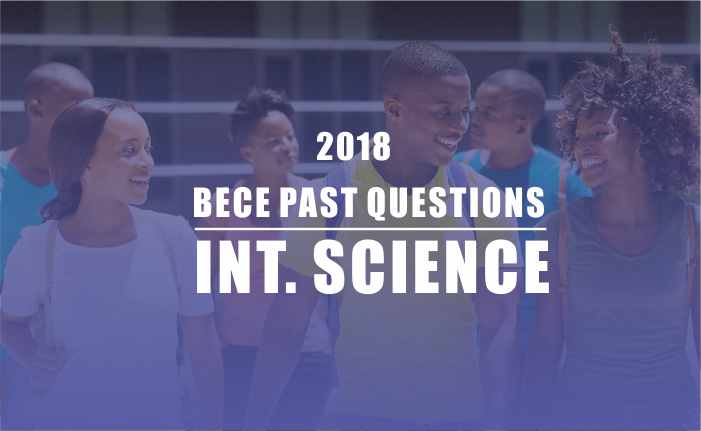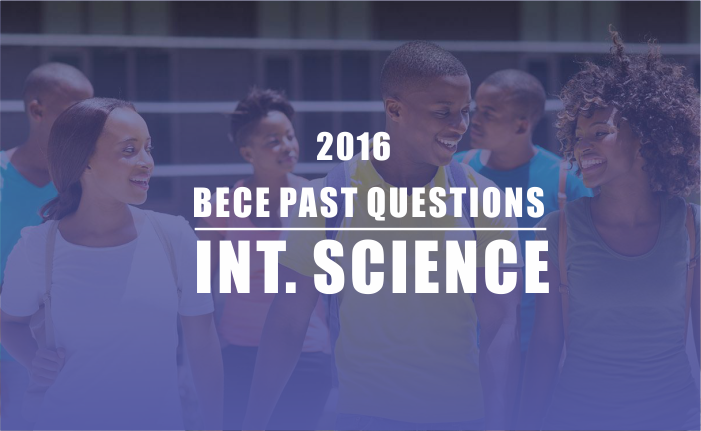Description
BECE 2012 Integrated Science Questions and Answers
The Basic Education Certificate Examination, which is more often referred to as the BECE, is a crucial milestone for secondary school students in West Africa. This is because it determines whether or not the students are eligible to enroll in senior high school. Access to past issues and solutions can be highly beneficial for students who are working hard to achieve success, particularly in subjects such as Integrated Science.
This is especially true for students who are attempting to achieve success. In this post, we will talk about the questions and answers that were asked on the BECE 2012 in the field of Integrated Science. We will also provide some advice on how to make effective use of these resources, and we will highlight the topics that were addressed the most frequently during that year.
Why Study BECE 2012 Integrated Science Questions and Answers?
Preparing with past BECE Integrated Science questions offers numerous advantages. First, it familiarizes students with the structure of the exam, including the types of questions that are commonly asked. The BECE 2012 Integrated Science exam, like others in past years, tested fundamental concepts that are still relevant. By going through these questions, students can identify recurring themes, understand how questions are framed, and gain the confidence needed to tackle similar questions in their exams.
Studying past questions also helps in time management. Since the BECE is timed, knowing how much time to allocate to each question is essential. Practicing with 2012 Integrated Science questions and answers allows students to simulate real exam conditions, which can improve their performance.

Key Topics Covered in the BECE 2012 Integrated Science Exam
The Integrated Science subject for BECE covers various aspects of science, including biology, chemistry, physics, and environmental science. In the 2012 exam, key topics included:
1. Matter and Its Properties
In 2012, questions related to the states of matter, physical and chemical changes, and properties of materials were prevalent. Understanding these concepts is essential, as they form the foundation of many questions in the physical sciences. Students should familiarize themselves with the definitions and characteristics of solids, liquids, and gases and be able to identify examples of each.
2. The Human Body and Health
Human anatomy and health were core areas of focus in the 2012 BECE Integrated Science paper. Questions often centered on human body systems, including the digestive, circulatory, and respiratory systems. Additionally, students were tested on the basics of hygiene, common diseases, and preventive measures. Studying this section helps students gain a better understanding of how the body functions and the importance of health practices.
3. Ecosystems and Environment
Another vital area was the ecosystem, including topics on plants, animals, and their interactions within the environment. Questions addressed food chains, food webs, and the impact of human activities on the environment. Familiarity with these topics is beneficial for understanding ecology and environmental science, which are increasingly relevant in today’s world.

4. Energy and Its Forms
The BECE 2012 Integrated Science questions included several items on energy and its various forms, including kinetic, potential, and thermal energy. Students were also tested on energy conservation and energy transformation. Understanding these concepts helps students answer questions on the behavior of energy in different systems and its application in everyday life.
5. Basic Chemistry Concepts
Chemical symbols, elements, and the periodic table also appeared in the 2012 exam. Questions in this section required students to identify elements, understand their properties, and know basic chemical reactions. A grasp of these concepts is critical for students preparing for Integrated Science, as chemistry plays a major role in the subject.
Tips for Answering BECE Integrated Science Questions Effectively
To make the most of the 2012 Integrated Science questions, students should keep the following tips in mind:
Read Questions Carefully
One of the most common mistakes students make is misinterpreting the question. For multiple-choice questions, students should read all options before choosing an answer. For essay questions, students should structure their answers clearly and ensure they address all parts of the question.
Use Illustrations and Diagrams
When applicable, using illustrations or diagrams can help clarify answers and demonstrate a deeper understanding of the topic. For example, if a question is about the human respiratory system, a well-labeled diagram of the lungs and air passages can enhance the answer.
Practice Time Management
Each section of the BECE has a set time limit, so it’s essential for students to practice pacing themselves. Working with the 2012 questions under timed conditions can help students build the habit of finishing within the allotted time.

Revise Key Concepts Regularly
Frequent revision is crucial to retaining information. Rather than cramming, students should regularly revisit the core topics covered in the BECE 2012 Integrated Science questions to ensure they have a firm grasp of the material.
Conclusion
Those students who are currently preparing for their examinations will discover that the questions and answers for the BECE 2012 Integrated Science are extremely valuable tools to have at their disposal. Students can improve their chances of succeeding in Integrated Science by studying past issues, focusing on crucial topics such as matter, human health, ecosystems, energy, and fundamental chemistry, and practicing tactics for efficiently managing their time. These are all things that they can do to improve their chances of success. The preparation with these questions not only enables students to develop their grasp of fundamental scientific issues, but it also helps them to increase their confidence, which puts them on the path to achievement. Overall, the preparation is beneficial to them.





Reviews
There are no reviews yet.